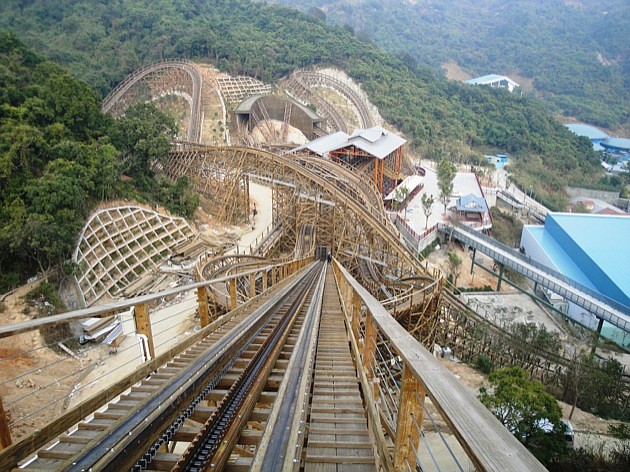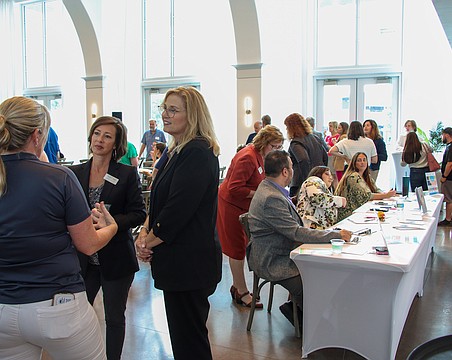For a guy who has been to just about every amusement park in the world, many more than once, Bob Dean sure loathes roller coasters.
“I've been terrified of them since I was a kid,” says Dean. “I would be totally discombobulated and messed up for two hours if I rode one.”
An even more unusual twist: Dean is one of the few people in the country who makes a living brokering sales of roller coasters between manufactures and amusement park operators.
Dean's firm, Sarasota-based Leisure Labs, represents five amusement ride manufacturers worldwide in commission-based arrangements. Essentially Dean, along with one Leisure Labs employee and independent contractors in Atlanta and Salt Lake City, match up amusement park executives in need of rides with one of the five specific clients.
“We are the rainmakers,” says Dean, who founded Leisure Labs in 2000. “We facilitate the deal.”
Dean normally takes a weeklong trip once a month to facilitate those deals. Dean recently worked with Ocean Park, an amusement park in Hong Kong that signed with two Leisure Labs clients to buy a bobsled-themed coaster and a bumper-car ride system.
Before taking on the ups and downs of roller coasters, Dean rode another kind of roller-coaster career — stock brokering — for seven years in the 1970s. He decided the telemarketing-like feel of the business wasn't for him. “I couldn't stand it,” says Dean. “It just wasn't any fun.”
The roller-coaster business is plenty fun, says Dean, even though he avoids the rides. He gravitated to the industry when he took a job with a film company in the 1980s. A series of corporate changes and public offerings led him to want to start his own business, and he found his spot after he spoke with another roller-coaster broker.
At its peak in the middle of the last decade, Leisure Labs arranged deals for roller coasters and other rides worth $35 million a year, says Dean. That resulted in $1 million to $2 million in annual revenues, on average.
Still, that $35 million figure has at least been cut in half the past two years because of the recession and industry consolidation.
“Our [industry] isn't as big as it was during the arms race of the '90s,” says Dean. That's when dozens of family-run amusement parks tried to outdo each other with bigger and better rides. “The business has really scaled down since then.”
Despite the industry downsizing, Dean continues to thrive. One reason goes back to a key lesson he learned from one of the few other people to have a similar business: Watch the money. Dean has had no debt, and the business has turned a profit every year.
Moreover, Dean says, if an amusement park wants to expand its audience, it needs to spend on capital upgrades every year, no matter the economy. So that almost guarantees some business.
While Dean avoids the rides, he enjoys riding their peculiarity. At parties, Dean morphs into a quasi-celebrity if word spreads about what he does for a living.
“You can be in a room full of Nobel laureates, but everyone wants to talk to the roller-coaster guy,” says Dean. “It's a very interesting way to make a living.”






